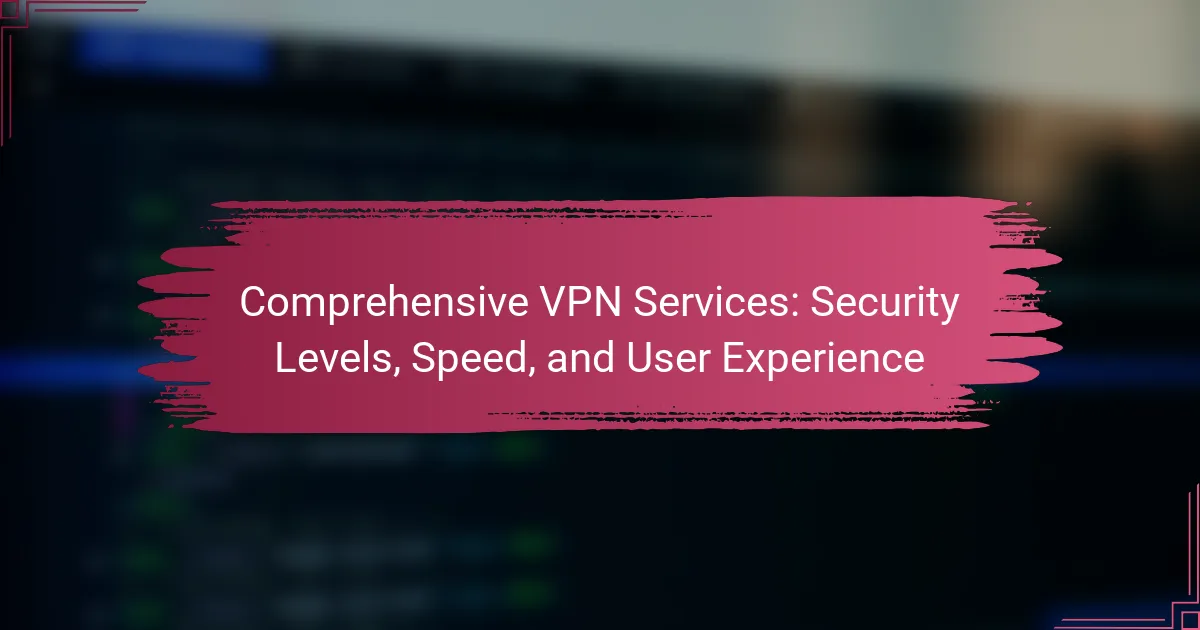Reliable password managers are essential software applications that securely store and manage user passwords. These tools utilize encryption to protect sensitive information, making it accessible only to authorized users. The article will explore various features of reliable password managers, including password generation, autofill capabilities, password sharing, and security audits. Additionally, it will address usability and pricing options, highlighting the critical role these applications play in preventing data breaches linked to weak or stolen passwords. Understanding these aspects is vital for enhancing online security and protecting personal information.

What are Reliable Password Managers?
Reliable password managers are software applications designed to store and manage user passwords securely. They encrypt passwords and other sensitive information, ensuring that only authorized users can access them. Reliable password managers often generate strong passwords and can autofill login forms for convenience. They also typically offer features like password sharing and security audits. According to a 2021 study by Cybersecurity Ventures, 81% of data breaches are linked to weak or stolen passwords. This highlights the importance of using reliable password managers to enhance online security.
How do Password Managers enhance online security?
Password managers enhance online security by securely storing and managing passwords. They generate complex passwords, reducing the risk of weak or reused passwords. Password managers encrypt stored passwords, making them inaccessible to unauthorized users. They also offer features like two-factor authentication, adding an extra layer of protection. According to a study by LastPass, 81% of data breaches are due to weak passwords. By using a password manager, users can mitigate this risk significantly. Regular updates and security audits further ensure that password managers remain secure against evolving threats.
What security features are essential in a Password Manager?
Essential security features in a password manager include strong encryption, two-factor authentication, and secure password sharing. Strong encryption protects stored passwords by converting them into unreadable formats. AES-256 encryption is a commonly used standard for this purpose. Two-factor authentication adds an extra layer of security by requiring a second form of verification. This could be a code sent to a mobile device or an authentication app. Secure password sharing allows users to share credentials safely without revealing the actual passwords. Additionally, features like a password generator and security audit tools help users create and maintain strong passwords. These features collectively enhance the overall security of a password manager.
How do Password Managers protect against phishing attacks?
Password managers protect against phishing attacks by autofilling credentials only on legitimate websites. They verify the URL before entering sensitive information. This prevents users from accidentally submitting data to fraudulent sites. Many password managers also feature security alerts for suspicious websites. They often include a password generator to create strong, unique passwords. This reduces the risk of credential reuse across multiple sites. Additionally, some password managers offer two-factor authentication for added security. Studies show that using password managers significantly reduces the likelihood of falling victim to phishing.
Why is Usability important in Password Managers?
Usability is crucial in password managers because it directly impacts user adoption and security. A user-friendly interface encourages individuals to create and manage strong passwords effectively. When password managers are easy to navigate, users are less likely to revert to insecure practices, such as writing passwords down or using simple, memorable passwords. Studies show that 81% of data breaches are linked to weak passwords. Therefore, a password manager with high usability can significantly enhance overall security by promoting better password hygiene. Additionally, features like auto-fill and password generation streamline the user experience, making it more likely that users will utilize the tool consistently.
What user-friendly features should a Password Manager have?
A password manager should have intuitive design, easy navigation, and seamless integration. Intuitive design allows users to understand how to use the software quickly. Easy navigation ensures users can find features without confusion. Seamless integration with browsers and devices enhances accessibility. Autofill functionality saves time by automatically entering passwords. Strong password generation creates complex passwords effortlessly. Multi-device synchronization keeps passwords updated across all devices. User-friendly recovery options help retrieve access in case of forgotten master passwords. These features enhance overall user experience and security.
How does the onboarding process affect usability?
The onboarding process significantly impacts usability by shaping the user’s initial experience with a product. A well-designed onboarding process helps users understand features and functionalities quickly. It reduces the learning curve and increases user satisfaction. Research shows that effective onboarding can enhance user retention by 50%. Conversely, a poor onboarding experience can lead to frustration and abandonment. Clear instructions and interactive tutorials during onboarding can improve usability. These elements guide users and help them navigate the interface confidently. Overall, a structured onboarding process is crucial for optimizing usability in password managers.
What factors influence the Pricing of Password Managers?
The pricing of password managers is influenced by several key factors. Features such as encryption strength and multi-factor authentication impact cost. The number of devices supported also plays a role in pricing. User interface design and ease of use can affect the perceived value. Subscription models, whether monthly or annual, determine overall pricing structures. Customer support options, including live chat or phone support, can add to costs. Additionally, brand reputation and market positioning influence pricing strategies. Finally, the inclusion of advanced features like dark web monitoring can justify higher prices.
How do free and premium Password Managers compare?
Free password managers typically offer basic features for secure password storage and autofill capabilities. Premium password managers provide advanced features such as secure sharing, password health reports, and multi-device sync. Free options may have limitations on the number of passwords stored or lack customer support. Premium versions often include robust encryption and additional security features like dark web monitoring. According to a 2021 survey by PCMag, 60% of users prefer premium password managers for enhanced security. Premium services generally ensure better user experience with regular updates and improved functionalities.
What are the common pricing models for Password Managers?
Common pricing models for password managers include subscription-based, one-time purchase, and freemium models. Subscription-based models charge users monthly or annually for access to features. This model often includes regular updates and customer support. One-time purchase models require a single payment for lifetime access. Users may miss out on ongoing updates with this option. Freemium models offer basic features for free, with premium features available through a paid upgrade. Each model caters to different user preferences and budgets. According to a 2022 survey by Cybersecurity Insiders, 70% of users prefer subscription-based password managers for their ongoing support and updates.
How do Security Features impact the choice of a Password Manager?
Security features significantly impact the choice of a password manager. Users prioritize strong encryption methods to protect their sensitive data. Password managers with zero-knowledge architecture ensure that even the service provider cannot access user data. Multi-factor authentication adds an extra layer of security, making unauthorized access more difficult. Regular security audits and vulnerability assessments enhance trustworthiness. Features like biometric logins and emergency access options also influence user preference. According to a 2021 survey by Cybersecurity Insiders, 76% of respondents valued security features over usability in password manager selection. These factors collectively guide users toward password managers that best meet their security needs.
What role does customer support play in the usability of Password Managers?
Customer support significantly enhances the usability of password managers. Effective customer support provides users with guidance on setup and troubleshooting. Users may encounter issues with password recovery or software updates. Responsive support teams can resolve these issues quickly, reducing user frustration. A survey by TechRadar found that 70% of users prioritize customer support when choosing software. This indicates that good support can lead to higher user satisfaction and retention. Additionally, comprehensive FAQs and tutorial resources contribute to a smoother user experience. Overall, strong customer support is essential for maximizing the usability of password managers.
What are the best practices for choosing a Reliable Password Manager?
Choose a reliable password manager by evaluating its security features, usability, and pricing. Look for end-to-end encryption to ensure that only you can access your passwords. Verify that the manager offers two-factor authentication for added security. Assess the user interface for ease of use, as a complicated design may lead to mistakes. Check for cross-platform compatibility to ensure access on all your devices. Review the pricing plans to ensure they fit your budget while providing necessary features. Research the company’s reputation and history to confirm trustworthiness. User reviews and expert recommendations can provide insights into the performance and reliability of the password manager.
How can users ensure they select a secure Password Manager?
Users can ensure they select a secure Password Manager by evaluating several key factors. First, look for end-to-end encryption, which protects data from unauthorized access. Next, check if the Password Manager has a zero-knowledge policy. This means the provider cannot access your passwords. Additionally, consider multi-factor authentication for an extra layer of security. Research the Password Manager’s security audits and certifications. Reputable services often undergo third-party audits to verify their security claims. User reviews and expert recommendations can also provide insights into reliability. Lastly, ensure the service offers regular updates to address vulnerabilities. Following these guidelines helps users choose a secure Password Manager effectively.
What features should users prioritize based on their needs?
Users should prioritize security features, usability, and pricing when choosing a password manager. Security features include strong encryption, two-factor authentication, and data breach monitoring. Usability aspects involve an intuitive interface, ease of setup, and cross-platform compatibility. Pricing should be transparent, with various subscription options to fit different budgets. According to a survey by PCMag, 80% of users value security above all else in password management. Additionally, features like password sharing and emergency access can enhance usability for families or teams.
What troubleshooting tips can help users maximize their Password Manager experience?
To maximize the Password Manager experience, users should ensure they are using the latest version of the software. Regular updates often include important security patches and new features. Users should also enable two-factor authentication for added security. This adds an extra layer of protection to their accounts.
Additionally, users should regularly review and update their stored passwords. Weak or reused passwords can compromise security. It’s also beneficial to check for any security alerts or notifications from the Password Manager. These alerts can inform users of any suspicious activity.
Finally, users should familiarize themselves with the support resources available. Many Password Managers offer guides, FAQs, and customer support to assist with issues. Utilizing these resources can enhance the overall experience and security.
Reliable password managers are essential software applications that securely store and manage user passwords, utilizing encryption to protect sensitive information. This article explores the critical security features that enhance online safety, such as strong encryption, two-factor authentication, and phishing protection. It also examines the importance of usability in promoting effective password management, alongside a discussion on pricing models and customer support. By evaluating these aspects, users can make informed decisions when selecting a password manager that meets their security needs and budget.



